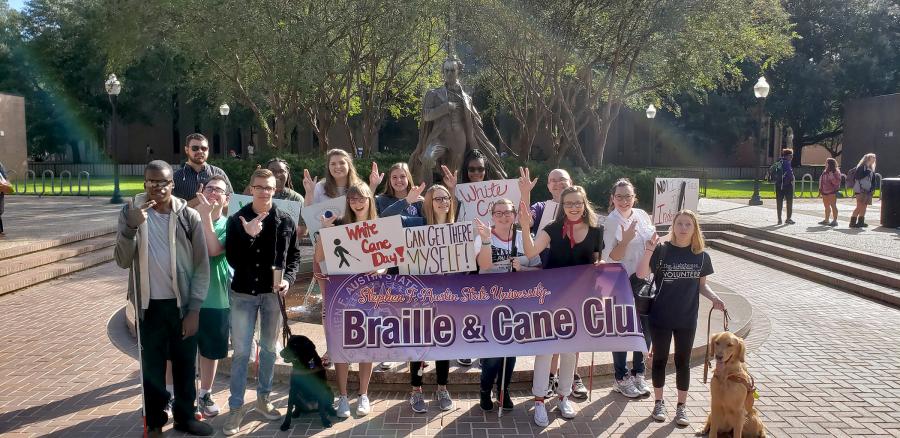NACOGDOCHES, Texas — With canes and signs in hand, members of Stephen F. Austin State University’s Braille and Cane Club held a parade recently on the university’s campus to celebrate White Cane Safety Day.
This national day of recognition is known as both White Cane Safety Day and Blind Americans Equality Day. It is annually celebrated in the U.S. on Oct. 15 to honor the contributions Americans who are blind or visually impaired make to the nation.
“On this day, we reflect as a nation on how we will continue to set the global standard in ensuring that our blind and visually impaired citizens live in communities of opportunity, respect and civic engagement,” said President Donald J. Trump in a proclamation signed Oct. 13.
Catherine Lard, SFA Braille and Cane Club president, organized the parade to celebrate the independence of people who are blind or visually impaired.
“This day is important because it helps spread awareness about people with visual impairments,” Lard said. “It also helps educate others about how people who are blind or visually impaired can be independent.”
Following the parade, students hosted a bake sale and information booth on campus.
SFA is home to the only undergraduate orientation and mobility program of its kind in the nation. Since the program began in 1972, faculty and staff have trained hundreds of students to assist people who are blind or have visual impairments. Cane training, a key component of the program, teaches students to use a cane and navigate an area while blindfolded to simulate complete blindness.
At SFA, students can receive a Bachelor of Science in Rehabilitation with a concentration in orientation and mobility or a master’s degree in special education with a specialization in orientation and mobility.
For more information, visit sfasu.edu/humanservices/122.asp.
 Axe ’Em, Jacks!
Axe ’Em, Jacks!
